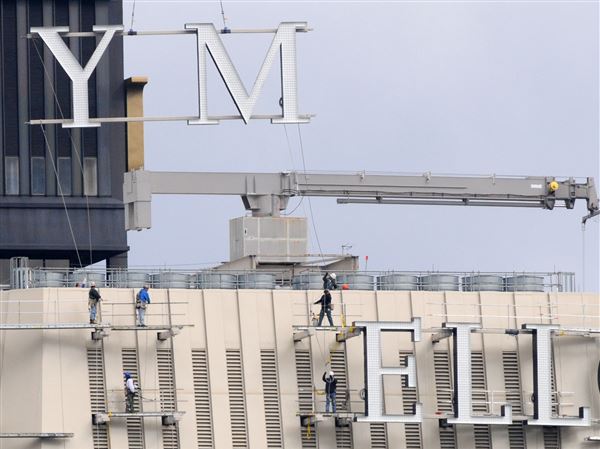State officials say Shuman Juvenile Detention Center is out of compliance with state regulations, citing violations of minimum staffing requirements, poor medical record documentation, inaccessible fire extinguishers and disrepair at the Lincoln-Lemington facility, where inspectors found leaky ceilings, dust-caked vents and black mold.
The Department of Public Welfare has issued a six-month provisional certificate of compliance for Shuman Center while officials there address needed corrections. A facility can receive up to four provisional licenses before possibly losing its license.
This is the first time Shuman Center has ever failed to receive compliance certification following an annual state inspection, and it is currently the only detention center in Pennsylvania with the downgraded certificate.
Shuman Director William T. "Jack" Simmons yesterday said he learned of the provisional certificate about three weeks ago and has already addressed the listed violations. DPW did not make the report public until this week.
Last week, Mr. Simmons sent a letter to DPW, inviting it to return to Shuman Center "as soon as possible to view and re-inspect the progress we have made."
Yesterday, he said the DPW action "quite frankly caught me by surprise" but he does not intend to appeal.
While not disputing the findings, he vowed, "As long as I'm here, there will never be another provisional license. And I can say with a degree of certainty that the staff feels the same way."
Among the most serious findings:
• Inadequate staffing. State regulations require detention facilities have one staff member for every six residents, but inspectors found, on five separate days, Shuman Center had 20 residents being supervised by three staff.
"Staff that were interviewed also indicated that it was common for one staff to walk to another area of the building with a group of more than six residents," the state found. That is a serious deficiency in a detention setting, said DPW spokeswoman Stacey Witalec.
"If your staffing ratio is out of compliance, you can have a pretty serious situation on your hands that gets out of control very quickly. Those extra two kids can become an overpowering force to the staff there."
Mr. Simmons said the understaffing often occurred in the middle of a shift.
"We were under the impression that we could correct that by the end of the shift" and still be in compliance, he said. Shuman now uses "floater" staff and supervisors to fill in during temporary shortages.
• Poorly documented medical records. Inspectors found six instances in which medications given to four residents were not recorded, "nor was an explanation provided" as to why that occurred. Also, none of 22 resident files reviewed had a written plan in case of a medical emergency.
Mr. Simmons said Shuman had been without a health services manager for seven months, but now the position is filled and medical record keeping is back on track.
• Low staff morale. Staff members felt supervisors supported them, but "nearly all of the staff described a disconnect with the administration," the report says. "They do not feel that issues that are brought to administrative staff attention are being addressed and stated this is another reason why morale is low among staff."
• Building disrepair. In addition to black mold in the Shuman cantina, inspectors found leaky ceilings, missing ceiling tiles and dirty vents, including one with "nearly one-half-inch of dust on it at the time of the walk-through." One unit had a sewage backup "with a resident's room having water inside covering 75 percent of the floor." Twenty of the facility's 130 toilets in residents' rooms "were in poor condition."
The roof was supposed to be replaced this past spring, but inclement weather has delayed the work until next month, Mr. Simmons said. He's waiting until the roof is fixed to have the tiles repaired. He said Shuman is now on "an aggressive cleaning schedule."
Shuman Center also was cited for not having fire drills at night and for fire extinguishers that were inaccessible because the locks or the keys were broken or missing. Mr. Simmons said a night fire drill was held last week, and that all extinguishers now work and are accessible.
Shuman, licensed for 130 beds, has often exceeded that limit and census was at 149 when state officials visited in June. Files were reviewed over two days, followed by a tour and follow-up interviews with staff and residents.
Although Shuman Center is currently under capacity, the census tends to go up again once school starts and there's little administrators can do about it. And maintaining adequate staffing means forced overtime for staff as well as crowded conditions for residents.
First Published: August 15, 2008, 4:00 a.m.














